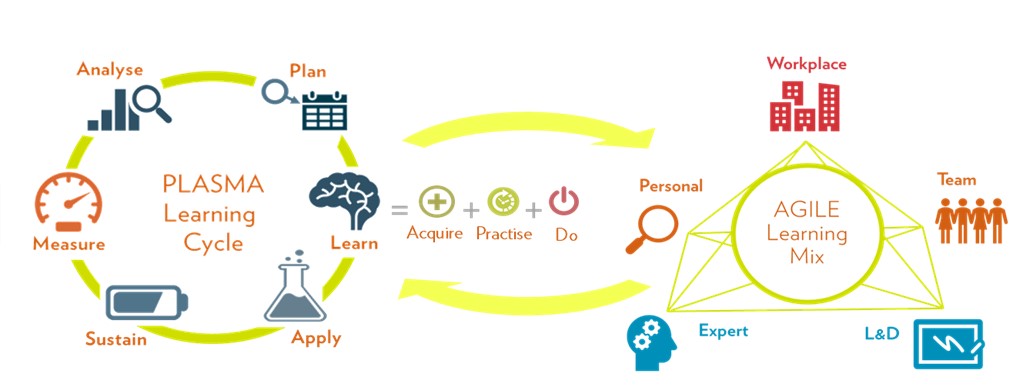Skills are imperative for organisational success. The COVID-19 pandemic has already accelerated the need for digital skills, and then there is the transition towards a greener economy, demographic changes, a shifting political landscape – all factors that are increasing skills gaps and driving the need for organisations to reskill and upskill their workers.
So, how do you take your people and reskill them for the future of work? Both to cope with the continuous evolution of products, services and roles and build enough skills to help accelerate ahead of your competitors. The key word here is skills. It is not enough for people to merely have surface knowledge – you need people who can actually apply skills with proficiency.
The challenge for learning and development professionals is helping people perform in a world of continuous change. Especially as many organisations are adopting an Agile approach to product and solution development, which makes change an even greater constant. How do we help people develop the skills they need to navigate the masses of change and thrive? What do they need to help them navigate and prepare them for success tomorrow? And not just one-dimensional hard skills and soft skills but the joined-up skills that enable people to perform at their highest level?

Traditionally, L&D teams have focused on the acquisition of knowledge, and this is particularly so in the digital learning space. However, learning is a broader process that involves acquiring knowledge, practising and doing.
By harnessing continuous learning cycles, organisations can inject real-world practice into the learning mix. Other elements to consider when building a continuous skills-building learning experience include personalised development pathways based on what the employee needs to be able to do, ways to connect learners to experts, coaches and mentors, feedback from peers and mentors and data-driven support, providing assessment and feedback to drive the learning experience.
In our Viewpoint paper, Skills Building: Getting Serious About Continuous Learning, we provide practical insights on:
• Engineering coherent learning experiences that can cover complex goals or topics, but still feel ‘easy’ to engage with as a learner
• Redesigning your learning programmes to suit today’s fast-paced, agile world
• Supporting ongoing learning rather than one-off events
• Focusing on what really matters – outcomes, performance and results

